Feel Safe: Difference between revisions
From LINKS Community Center
Eschmidt (talk | contribs) No edit summary |
Eschmidt (talk | contribs) No edit summary |
||
| Line 3: | Line 3: | ||
Feel Safe is an educational platform | Feel Safe is an educational platform with a twofold objective: | ||
# Increasing boys and girls awareness of Culture of | # Increasing boys' and girls' awareness of Culture of Safety and Resilience and their engagement in disaster prevention and preparedness actions. | ||
# Promote networks of good practices working on child centered Disaster Risk Reduction | # Promote networks of good practices working on child-centered Disaster Risk Reduction. | ||
Feel Safe users are mainly mid school teachers and educators, but also anyone else who | Feel Safe users are mainly mid school teachers and educators, but also anyone else who works with children on risk management. Feel Safe promotes the use of social media, technologies and digital education as a means to enhance communities' resilience to disasters. | ||
The website is organized under 5 thematic areas and specific pathways focusing on vulnerabilities, awareness, communication, being prepared and earthquakes. The activities are based on a participatory and experiential approach. | The website is organized under 5 thematic areas and specific pathways focusing on vulnerabilities, awareness, communication, being prepared and earthquakes. The activities are based on a participatory and experiential approach. | ||
Revision as of 15:10, 5 October 2023

Feel Safe is an educational platform with a twofold objective:
- Increasing boys' and girls' awareness of Culture of Safety and Resilience and their engagement in disaster prevention and preparedness actions.
- Promote networks of good practices working on child-centered Disaster Risk Reduction.
Feel Safe users are mainly mid school teachers and educators, but also anyone else who works with children on risk management. Feel Safe promotes the use of social media, technologies and digital education as a means to enhance communities' resilience to disasters.
The website is organized under 5 thematic areas and specific pathways focusing on vulnerabilities, awareness, communication, being prepared and earthquakes. The activities are based on a participatory and experiential approach.
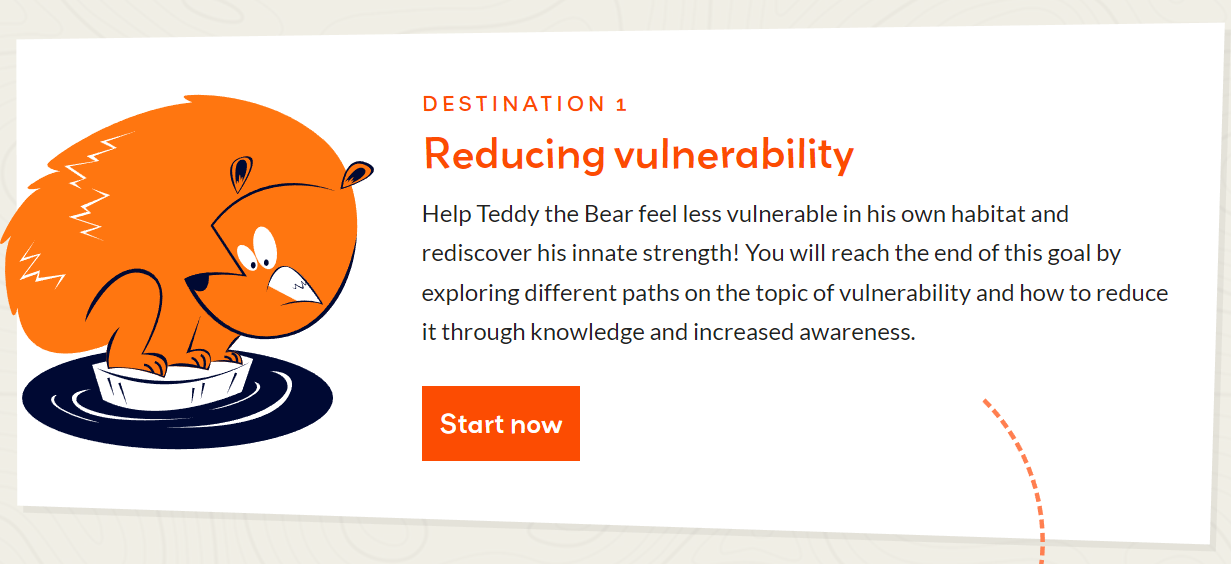
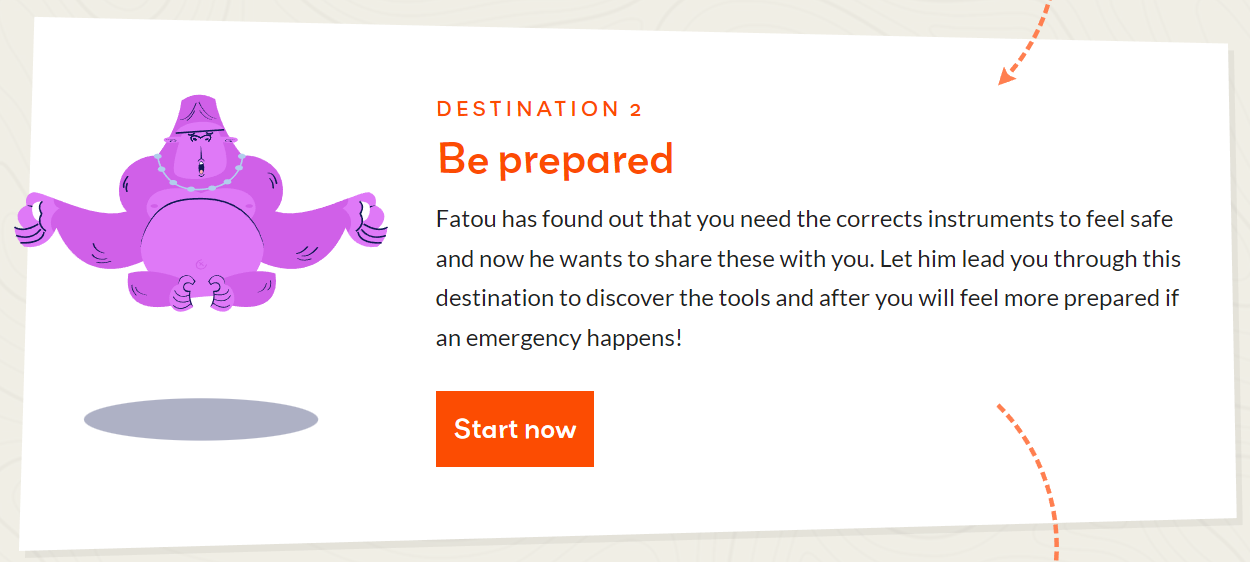
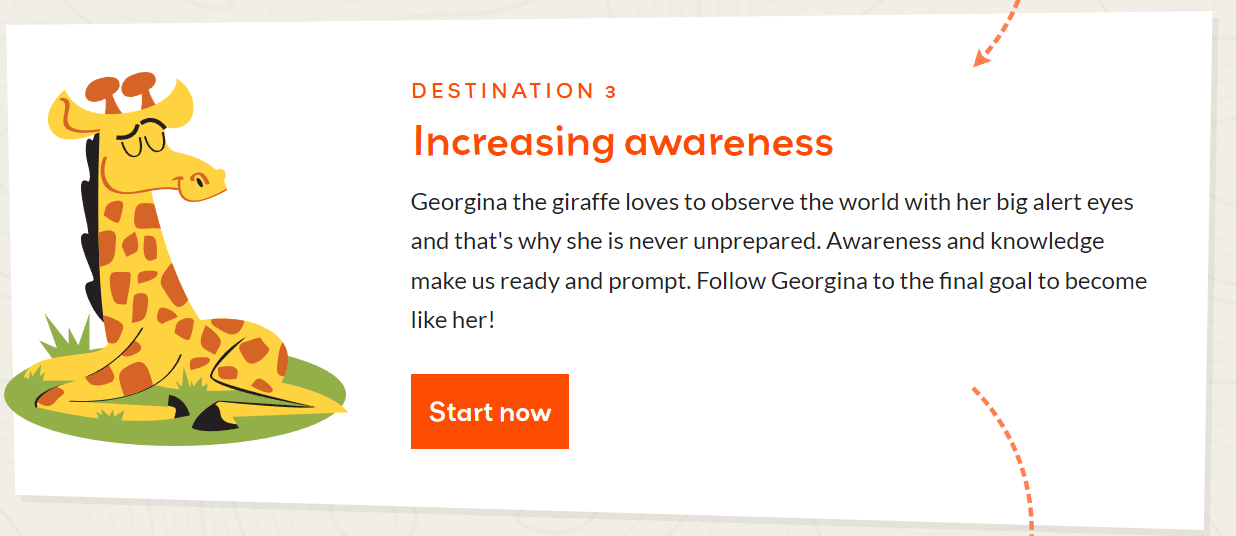
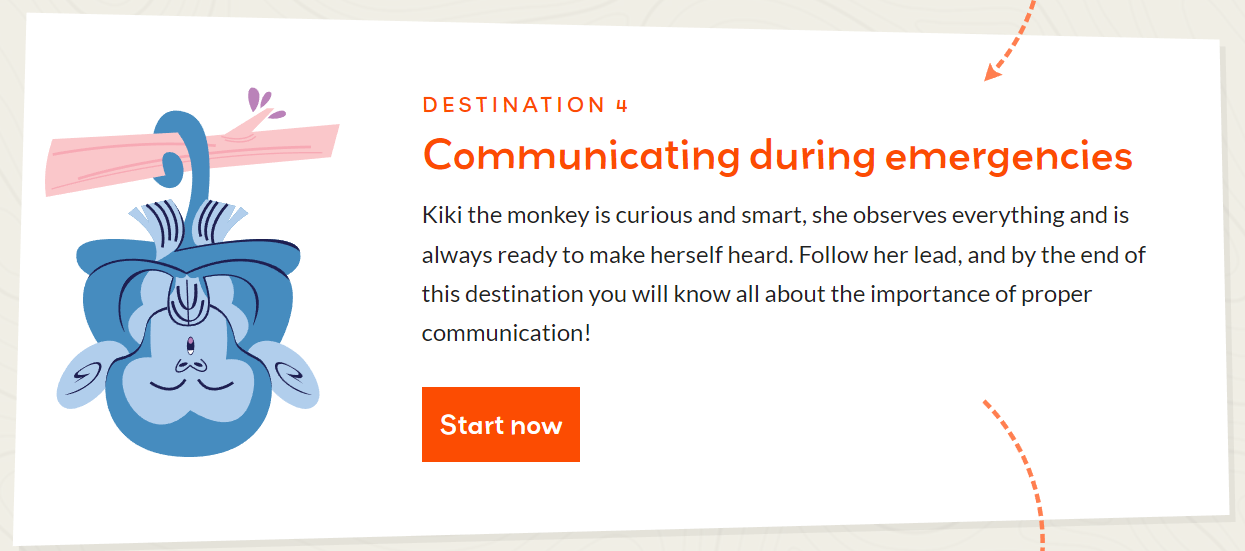
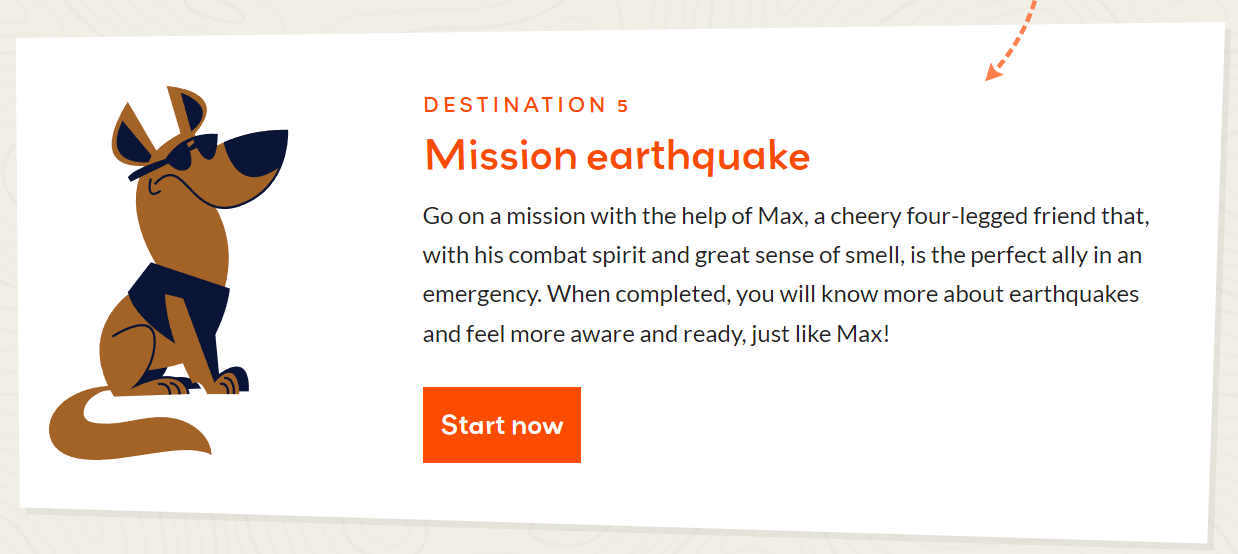
You want to test it? Ask: Franceso Graziani